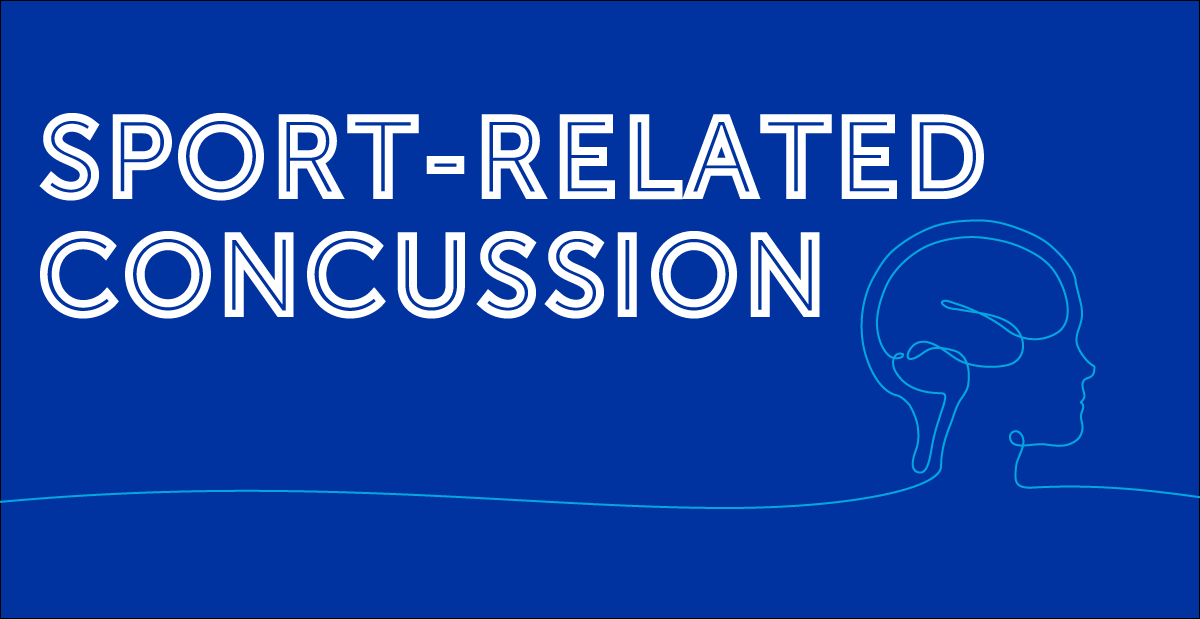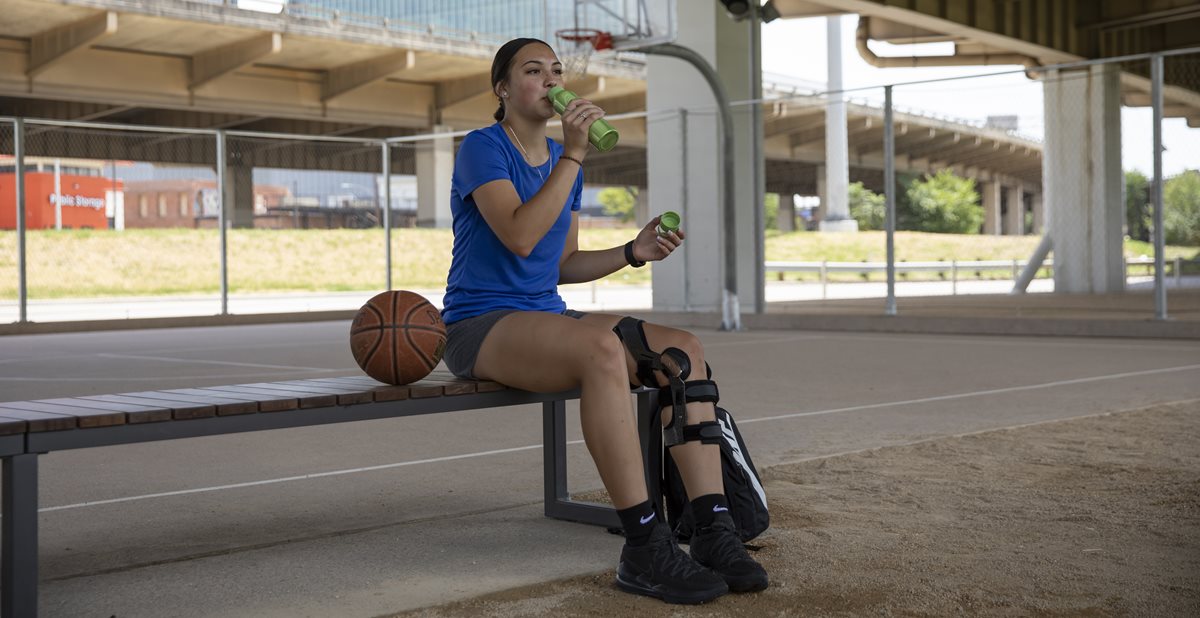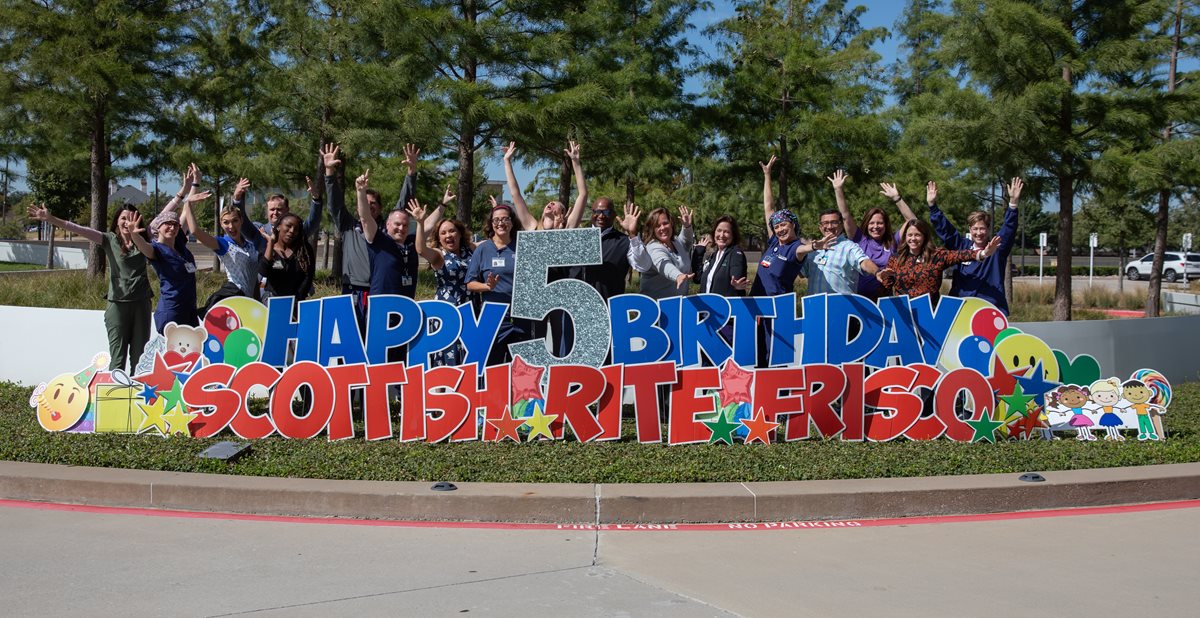
Nov 24, 2020 / Sports Medicine
Return to Learn - Back to School After a Concussion
Athletes are often eager to return to sports following a concussion, but Scottish Rite for Children’s pediatric sports medicine physician Shane M. Miller, M.D., says, “Recovering from the injury and returning to school takes priority over getting back to competition.” Here are some general principles to keep in mind when we are making recommendations for our patients.
Affected Systems
Each concussion and each athlete is unique. Therefore, different body systems are affected differently. Some athletes experience headaches, some have visual changes, some have poor balance and some are very sensitive to light and noise. Many will struggle with schoolwork due to these symptoms, or difficulty with concentration or memory. The physical exam, results of neurocognitive tests, like ImPACT®, and symptom log all help us make patient-specific recommendations. For example, an athlete that demonstrates visual difficulties may do well sitting and listening in class but may have a hard time reading and taking notes. A younger child that is sensitive to light and noise may need accommodations to the learning environment or technology use.
Elementary Considerations
Since younger athletes are less likely to communicate their symptoms independently, we suggest these techniques to parents:
Middle School and High School Considerations
The goal is to help the student athlete return to class successfully. As the student recovers from their injury, they may gradually increase their level of academic activity as tolerated and the adjustments in place are slowly lifted. Miller says, “Since an extended period of total rest is not advised, we provide patient-specific recommendations to help each athlete return to school after no more than two to three days of rest.” Proper management has been associated with reduced time to recovery. This is one of many reasons for young and growing athletes to see a pediatric sports medicine specialist after a concussion.
Learn more about pediatric sports concussions and injury prevention.
Affected Systems
Each concussion and each athlete is unique. Therefore, different body systems are affected differently. Some athletes experience headaches, some have visual changes, some have poor balance and some are very sensitive to light and noise. Many will struggle with schoolwork due to these symptoms, or difficulty with concentration or memory. The physical exam, results of neurocognitive tests, like ImPACT®, and symptom log all help us make patient-specific recommendations. For example, an athlete that demonstrates visual difficulties may do well sitting and listening in class but may have a hard time reading and taking notes. A younger child that is sensitive to light and noise may need accommodations to the learning environment or technology use.
Elementary Considerations
Since younger athletes are less likely to communicate their symptoms independently, we suggest these techniques to parents:
- Teachers and on-campus staff typically know these children well, and should be informed about the child’s injury so they may observe the student closely and make reasonable adjustments as necessary.
- Students whose symptoms worsen with reading activity may still be able to learn by listening (i.e. during class listening to teacher, or having assignments and questions read aloud to them).
- P.E. and recess are good times to schedule a mid-day rest break since these activities should be restricted until cleared by a physician.
Middle School and High School Considerations
- Class attendance and grades become more important, so specific recommendations will be valuable for these athletes. They may or may not have an athletic trainer on campus, so the school nurse or other staff member may still be the most appropriate in-school resource for these students.
- Homework or in-class assignments may be appropriate, however, after a concussion, more time or a shorter version may be necessary. For example, a student might complete only the odd-numbered questions on an assignment.
- Sustained focus for long periods of time may worsen symptoms, so frequent rest breaks may be helpful.
- Student athletes often report challenges with use of technology (i.e. laptop or computer use, smart boards, mobile devices) and may better tolerate these activities when the screen brightness is reduced or font size increased.
- Consider postponing important tests (i.e. SAT, ACT, final exams). If there are ongoing cognitive issues, allow additional time to complete exams.
The goal is to help the student athlete return to class successfully. As the student recovers from their injury, they may gradually increase their level of academic activity as tolerated and the adjustments in place are slowly lifted. Miller says, “Since an extended period of total rest is not advised, we provide patient-specific recommendations to help each athlete return to school after no more than two to three days of rest.” Proper management has been associated with reduced time to recovery. This is one of many reasons for young and growing athletes to see a pediatric sports medicine specialist after a concussion.
Learn more about pediatric sports concussions and injury prevention.



